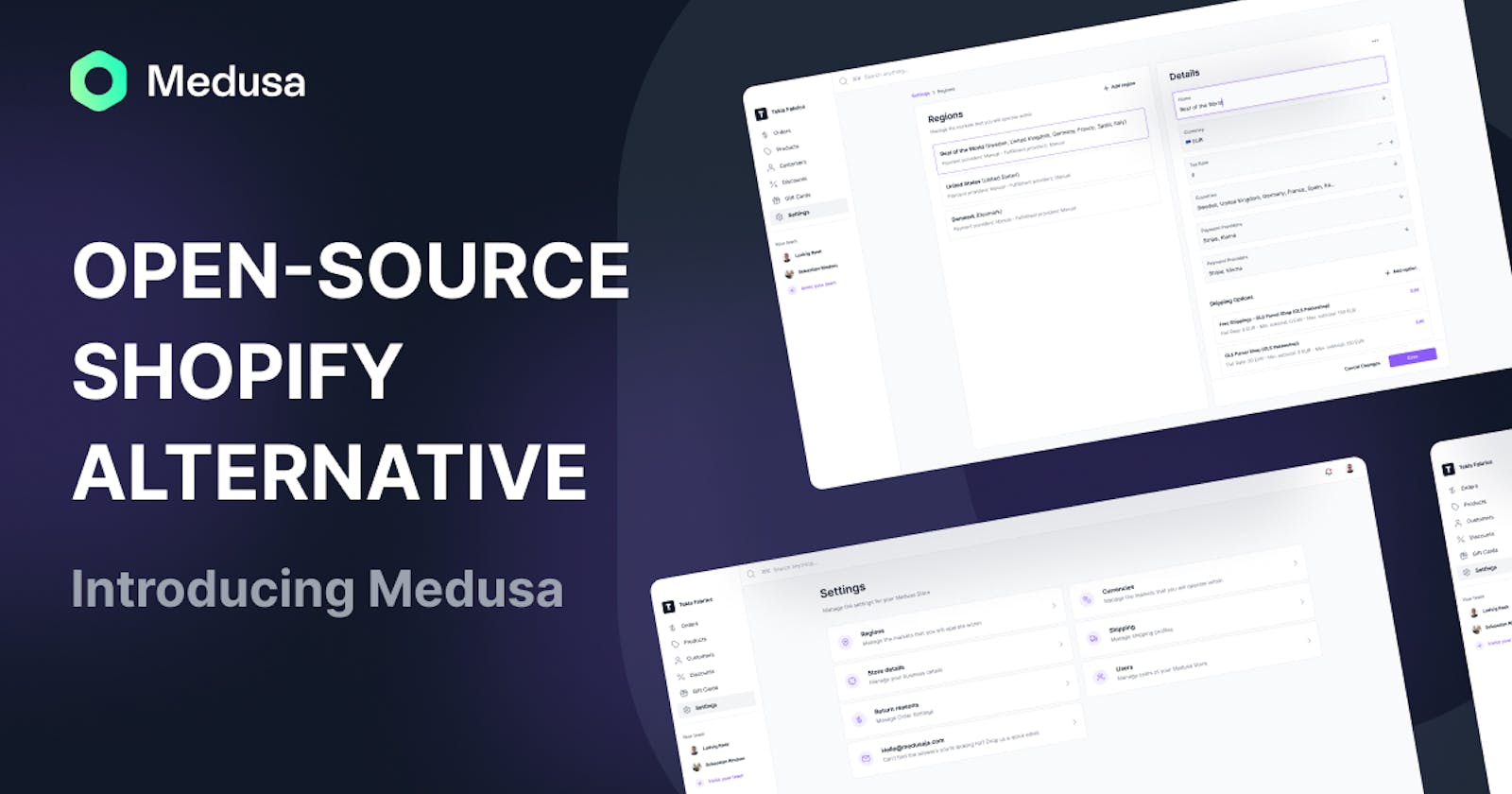An open-source Shopify alternative in Node.js
Introducing Medusa: an open-source headless commerce platform
TL;DR check out Medusa:
- The headless open-source Shopify alternative in Node.js
- Lowering the bar for when developers and merchants can build headless
- 5k stars since September and already in production at global ecommerce clients
What is it
Medusa is the open-source alternative to Shopify. It is a commerce backend in Node.js covering E2E commerce features (e.g. order handling, admin system, product creation) but is built open-source and headless to maximize developer flexibility.
The architecture is built for composability, giving you integrations to popular headless CMSs; shipping and payment providers; marketing, analytics and search solutions etc. Simultaneously, it comes with starters for both Next.js and Gatsby on the frontend.
At last, it has natively built-in multi-regional support enabling you to localize currency, shipping, payment, and tax for each market you operate in.
Headless commerce for all
Medusa aims to lower the bar for when developers and merchants can start building headless commerce applications. For years, the headless approach has been an enterprise exclusivity due to the large number of developer resources it requires to build a storefront and maintain backend infrastructure. Medusa lowers the bar by:
- Removing the need for a complex infrastructure through a clever plugin architecture. The core engine and all plugins run as part of the same Node.js server which is contrary to how other headless platforms need connectors and translation layers between the commerce engine and third-party services.
- The solution is optimized for the developer experience through strong tooling such as quick-starters, documentation, CLI, references, etc. to reduce the constraints put on the developer.
The story behind Medusa
Medusa was originally built as a bespoke platform for TEKLA Fabrics almost three years ago. They wanted to switch away from WooCommerce to a more composable setup that enabled them to switch the tech stack as they grew and that could be easily scaled across markets. With solutions like Shopify, this type of customization would require a lot of "hacking" which their engine is not built for, and with no evident alternatives, the only viable option was to build it from scratch.
The solution was later named Medusa and was fully open-sourced in August. The platform has since supported online selling all across the world from global brands to local D2C stores. The project managed to hit 5,000 GitHub stars before Christmas while counting a Discord community of +700 members.
For more info check out our webpage here - and feel free to reach out to the Medusa Community which is always ready to support new use cases and help you get started!

